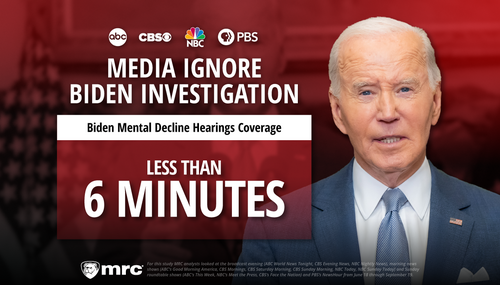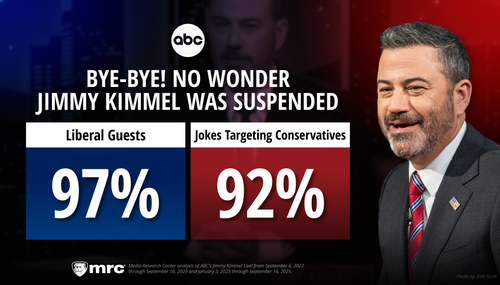 In a Sunday appearance on CNN’s Reliable Sources, conservative thought leader and editor-in-chief of The Daily Wire, Ben Shapiro and host Brian Stelter had a thoughtful discussion about where the media was failing when it came to discussing religion, conservatives, and President Trump.
In a Sunday appearance on CNN’s Reliable Sources, conservative thought leader and editor-in-chief of The Daily Wire, Ben Shapiro and host Brian Stelter had a thoughtful discussion about where the media was failing when it came to discussing religion, conservatives, and President Trump.
At the top of the second part of their interview, Stelter lamented that religion was “oftentimes a blind spot for the American media” and an “ongoing disappointment” for him and others. To his credit, he disliked how “these topics are not more front and center in the public square that the press creates.”
Shapiro pointed out that journalism school and college tend to draw people who shun God and religion, which inevitably leads to “a huge blind spot in the discussion of religion and what that leads to is sort of an antagonistic relationship with people who are religious and tend to mislabel anybody who's religious is a bigot.”
Part of their discontent for religion results in media folks smearing it as “just cover for an innate bigotry”, and the anti-religious notion that “if we just got rid of the religion we would be able to get beyond the bigotry,” according to Shapiro. “I don't think that's an accurate assessment of what religion means to people. I don’t think it’s an accurate assessment of what church means to people.”
Moving onto the media’s “constant drumbeat that President Trump is an awful, awful man”, Shapiro called out the media for letting their hatred for Trump morph into smearing the good people that support the good things that he has done:
And that what we have a true moral conflict in terms of character, and if you back President Trump – And this where you really go too far. What you see from the media is this idea that if you back President Trump it's inherently because you back the worst things he's ever said or ever done. That's -- that is an untrue statement.
This is a criticism that CNN was guilty of in spades. CNN Tonight host Don Lemon once attacked Trumps supporters as “people who will lie, steal, and cheat, lie to their mother.” He smugly declared Trump’s supporters were worse people than the President because they overlooked his wrongdoings. It’s vitriol that often comes up between Lemon and fellow CNN host Chris Cuomo.
Stelter wanted Shapiro to clarify his statement to mean he was only talking about “liberal commentators”. But his guess clarified that he also meant the “liberal commentators who pose as journalists.” Which CNN also has a ton of; White House correspondent Jim Acosta and reporter Jim Sciutto (a former Obama flack) come to mind.
“We need a lot of reporters who are just gathering facts and we need a lot of people who have views about those facts and perspective about those facts. The issue is when it gets blurry, right? It gets really, really blurry to the point where people can't recognize which is which,” Stelter said.
But to un-blur the lines at CNN, a viewer would need really thick coke-bottle glasses. It’s like being unable to read the massive “E” on an eye chart. The network refuses to acknowledge that their prime time programming was every bit opinion based as Fox News’s.
Suggesting Shapiro was walking a “tight-rope” when criticizing Trump, Stelter wanted to know how his guess felt about his conservative rivals who thought “they can only say the positive and ignore all the negative.”
“Frankly, I don't think that's what people are looking for. I think what people are looking for is an honest take. Not an objective take but my honest take as a human being on what the President is doing,” Shapiro explained. “What people don't want is a feeling like you're subsuming your honest take in favor of political partisanship.”
Meanwhile, most of CNN’s so-called “conservative” and “Republican” commentators only say the negative and ignore all the positive. Even going so far as to completely abandon their principles in favor of political partisanship.
The transcript is below, click "expand" to read:
CNN’s Reliable Sources
May 5, 2019
11:41:21 a.m. EasternBRIAN STELTER: Talking about faith, talking about religion. It's oftentimes a blind spot for the American media. It's an ongoing disappointment for me and I think for other people as well, that these topics are not more front and center in the public square that the press creates.
BEN SHAPIRO: I mean, I totally agree with this. It's really a serious problem because, unfortunately, the media, because they're located where they're located, because people who tend to go to J-school are people who tend to be more secular in orientation, people who go to university tent to be more secular in orientation. There seems to be a huge blind spot in the discussion of religion and what that leads to is sort of an antagonistic relationship with people who are religious and tend to mislabel anybody who's religious is a bigot.
To suggest that religious beliefs are really just cover for an innate bigotry; and if we just got rid of the religion we would be able to get beyond the bigotry. I don't think that's an accurate assessment of what religion means to people. I don’t think it’s an accurate assessment of what church means to people. And I think that, people on the coasts very often tend to be pretty belie about the social fabric that is created by community and church in America. And as that fades away, there is a big gap that is left and that's not being filled by Facebook.
STELTER: I remember when we spoke last year, you talked about a tonal shift that was needed in coverage of President Trump. That the coverage often times comes across as way too negative to a big chunk of the population. Do you still feel that's true, now, in mid-2019?
SHAPIRO: I do. Listen, I've said all along when President Trump says something that's not true, the media should fact check him just as they should any other president. When President Trump says something that is morally reprehensible, he should be called on that just as any other president should be. But the constant drumbeat that President Trump is an awful, awful man – Orange man bad and, therefore, he should be ousted on the basis of his lack of character and that other characters in politics are imminently better.
And that what we have a true moral conflict in terms of character, and if you back President Trump – And this where you really go too far. What you see from the media is this idea that if you back President Trump it's inherently because you back the worst things he's ever said or ever done. That's -- that is an untrue statement.
STELTER: When you say the media, you mean liberal commentators, right?
SHAPIRO: I do mean liberal commentators. I also mean, very often liberal commentators who pose as journalists. And this has been one of the great battles inside media. You know, there are people like me who are openly conservative. And I say, I will cover the news from an openly conservative perspective.
STELTER: I think we need a lot of both. We need a lot of reporters who are just gathering facts and we need a lot of people who have views about those facts and perspective about those facts. The issue is when it gets blurry, right? It gets really, really blurry to the point where people can't recognize which is which.
SHAPIRO: I think that's exactly right. And I think there are certain reporters who are better at this and I think there are certain reporters who are not as good at this. And I would recommend – honestly –even the objective reporters state up front their political preferences so we can then determine how much of their political preferences is being reflected in their coverage. I don't see why more information handed to the American public is a bad thing.
STELTER: How do you walk this tight rope? Actually, do you think it's a tight rope when you're criticizing the President from a conservative point of view, knowing that some of your fans hate hearing that.
SHAPIRO: I mean, it's never been a tight rope to me in the sense that the President is a human being. We're all human beings who do bad things and who do good things. When he does the bad thing I've never felt the necessity to defend the bad thing that he is doing. And when he’s done a good thing, I’ve never felt the necessity to disown the good thing that he is doing in order to draw an overall picture of the man.
STELTER: But a lot of your rivals do, right? Lots of them think they can only say the positive and ignore all the negative.
SHAPIRO: Frankly, I don't think that's what people are looking for. I think what people are looking for is an honest take. Not an objective take but my honest take as a human being on what the President is doing. What people don't want is a feeling like you're subsuming your honest take in favor of political partisanship. That gets boring very quickly.
STELTER: Right, I agree with that. That does get boring very quickly.




